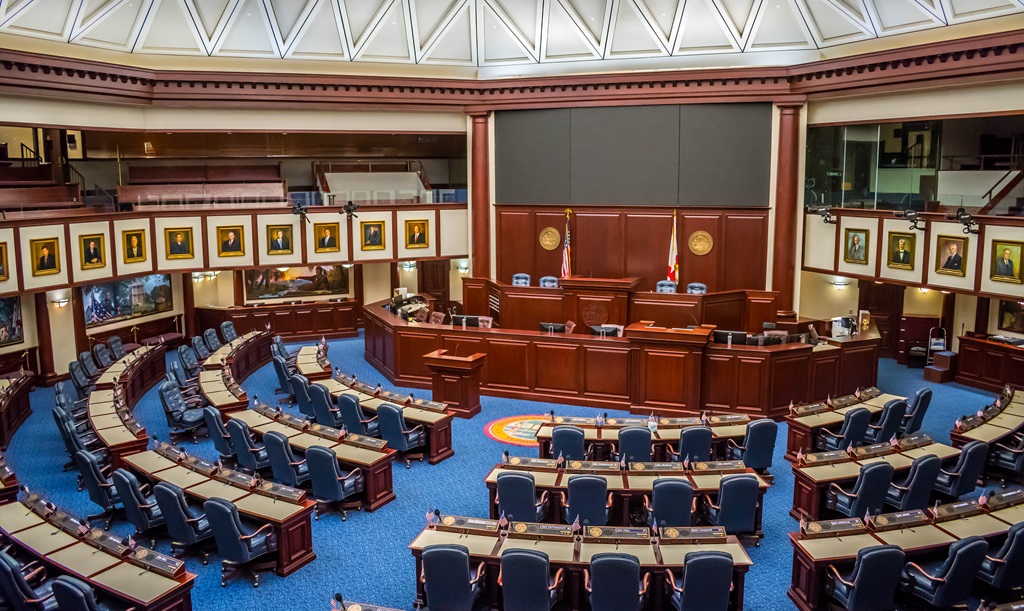Education
We’ve Tracked Over 700 Immigration Bills This Year. Here Are the Trends We’ve Seen.
[ad_1]
Written by Juan Avilez, State and Local Policy Associate and Victoria Francis, Deputy Director of State and Local Initiatives
As we reach the mid-year point in 2024, most states have concluded their legislative sessions, and once again, immigrant-related policies have taken center stage. This year, legislatures advancing harmful policies targeting immigrant communities have stolen the headlines, with numerous extreme proposals becoming law—but that’s not the whole story. Many states have also advanced welcoming policies that aim to help newcomers succeed.
The Council’s State and Local Initiatives Team has tracked over 700 bills in 2024, ranging from bills aiming to establish Offices of New Americans in places like Pennsylvania, Vermont, Hawaii, and Maine to bills seeking to expand licensure opportunities for internationally trained dentists in Florida.
Our recently updated data demonstrates the key role immigrants and refugees play in supporting state and local economies. Recognizing this and the many other invaluable social and cultural contributions newcomers make to their communities, legislatures across the nation are taking the initiative to help immigrants and refugees succeed.
Pro-immigrant and welcoming bills continue to pass in droves
Continuing trends we’ve seen in previous years, states are investing in their future by ensuring their workforce can meet and keep up with growing state economies and labor demands. To aid this, states are removing barriers to professional and occupational licensure that prevent immigrants from fully utilizing their talent.
- Florida will expand licensure opportunities for internationally trained physicians. The measures passed with bipartisan support.
- A law in Washington will allow qualified Washingtonians to apply for certain professional and occupational licenses, regardless of their citizenship or immigration status, using their Individual Taxpayer Identification Number.
- A measure in Virginia addresses healthcare in underserved communities by allowing the Virginia Board of Medicine to issue a two-year provisional license to a physician licensed in a foreign country, offering a two-year renewal if they practice in a medically underserved area.
- Wisconsin created provisional licenses for certain internationally trained physicians and physician assistants to practice in the state. After three years of practicing in good standing, the license becomes permanent.
Several states introduced legislation to codify or establish a statewide Office of New Americans, meaning 20 states now have offices or senior policy officials focused on coordinating and implementing immigrant integration initiatives. These offices and officials ensure the state government is connected to immigrant and refugee communities and focus on a range of areas, from workforce development to language access.
- Hawaii created an immigration services and access unit within the Office of Community Services. The office will work to ensure equitable access to state government services for immigrant communities in the state.
- In its supplemental budget, Maine provides funding for two positions to support the Office of New Americans program in the state.
In addition to continuing pro-immigrant policy trends, some states took novel approaches to welcoming immigrants and refugees.
- Colorado advanced two bills employing unique approaches to address the needs of immigrants. One bill provides grants to community-based organizations to help recently arrived migrants access and navigate services. Another measure establishes a language advisory board to develop recommendations for improving access to the legislative process for populations with limited English proficiency.
- In California, a bill making its way through the legislature would ensure that state colleges, universities, and community colleges do not disqualify students for employment positions due to a lack of federal work authorization.
- To help improve academic success, Oregon passed a bill that requires the state’s Department of Education to implement a statewide education plan specifically for students who are asylum seekers, refugees, or who come from other immigrant backgrounds.
Legislatures also continued to show support for refugee communities by adopting resolutions that celebrate refugees’ contributions to their states.
- Utah passed a resolution celebrating the state’s history of welcoming refugees.
- In Michigan and New York, resolutions declared June 20, 2024, as World Refugee Day in their states.
Challenging harmful policies
Fifteen states passed immigrant-related resolutions ranging from urging state or federal policymakers to take action related to immigrants coming to the U.S. through the southern border to condemning the federal government for its handling of immigration issues. Other states advanced policies opposing “sanctuary policies,” expanding cooperation with federal immigration authorities, and restricting recognition of various forms of identification and access to state IDs.
More frequently making headlines were extreme anti-immigrant measures, oftentimes modeled off Texas’ SB4 (2023), a bill that allows local law enforcement to detain and jail people suspected of entering the United States without authorization. Lawmakers in Iowa, Oklahoma, and Louisiana advanced measures this year that contain enforcement provisions like those in SB4. In Arizona, a ballot initiative will see voters decide whether the state implements a similar law.
Regardless of whether these bills go into effect—many of them are being challenged in court—their salience creates fear and distrust among immigrant and refugee communities, negatively impacts state economies and workforce needs, and harms all residents where they are being passed.
With a presidential election looming later this year, the focus will be on policies proposed by the two presidential candidates. However, regardless of the outcome in November, some of the most significant and impactful immigrant and refugee-related policies, for better and for worse, will continue to be enacted at the state level. As we are seeing year after year, states are still the catalyst for policies that impact immigrants and can demonstrate the positive impact state governments can have on shaping the lives of immigrants in the United States.
[ad_2]
Source link
Related posts:












